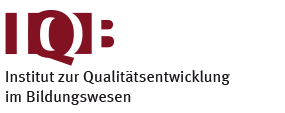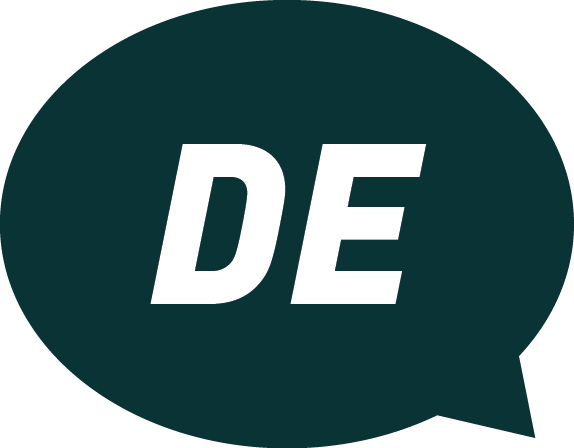Literacy, Inclusion, Communication (LINK)

Inhaltsverzeichnis
Hinweise zur Nutzung der Daten
> Scientific Use Files beantragen
| Datensatz veröffentlicht am | 22.05.2023 |
|---|---|
| aktuelle Version verfügbar seit | 22.05.2023 |
| Erhebungszeitraum | 2019, 2020 |
| Stichprobe | Kindergartenkinder (N=340); pädagogisches Personal (N=100); Kindergartengruppen (N=21); Kindergärten (N=6); |
| Erhebungseinheit | Kindergartenkinder pädagogisches Personal Sonstiges |
| erfasste Kompetenzen | Literacy, inklusive Praxis, prosoziales Verhalten, phonologische Bewusstheit |
| Region | Nordrhein-Westfalen |
| Leitung | Boenisch, Prof. Dr. Jens Sachse, Dr. Stefanie K. |
| Datengebende | Sachse, Dr. Stefanie K. |
| Auftraggebende / Mittelgebende | Bundesministerium für Bildung und Forschung (BMBF) |
| Link zur Studie | https://www.fbz-uk.uni-koeln.de/projekte/link |
| Zitationsvorschlag | Kröger, S., Sachse, S.K. & Boenisch, J. (2023). Literacy, Inklusion, Kommunikation (LINK) (Version 1) [Datensatz]. Berlin: IQB - Institut zur Qualitätsentwicklung im Bildungswesen. http://doi.org/10.5159/IQB_LINK_v1 |
| Datenrestriktion / Zugangshinweise | Zu dieser Studie liegen Sperrvermerke vor. Falls Sie einen Datennutzungsantrag stellen möchten und Nachfragen haben, wenden Sie sich gern an uns. |
Projektbeschreibung
Im LINK-Projekt wurde das Ziel verfolgt, eine Weiterbildungsmaßnahme zur Qualifizierung pädagogischer Fachkräfte für inklusive Bildung zu entwickeln und zu evaluieren. Pädagogische Fachkräfte sollten befähigt werden, die Interaktion mit den Kindern so zu gestalten, dass auf der einen Seite Individualisierung als Grundprinzip einer inklusiven Praxis realisiert werden kann und dass auf der anderen Seite die Teilhabe aller Kinder unterstützt wird. Der Fokus wurde entsprechend auf die Gestaltung der Interaktion und auf die Implementierung konkreter Individualisierungs- und Teilhabeangebote gerichtet.
Als Kontext wurden Literacy-Angebote gewählt. Diese bieten sich für inklusive Settings an, weil viele konkrete Beispiele sowohl zur Gestaltung von Gruppensituationen als auch zu möglichen individuellen Adaptionen gegeben werden können, die auch auf andere Situationen im Kita-Alltag übertragen werden können.
Im Rahmen der Evaluation wurden 15 Interventionsgruppen mit 6 Kontrollgruppen in Bezug auf die inklusive Praxis und die Literacy-Angebote verglichen. Bei den Kindern wurden schriftsprachliche und prosoziale Fähigkeiten erhoben.
Die Ergebnisse liefern den Nachweis der Wirksamkeit der Intervention in Bezug auf die Literacy-Angebote in den Gruppen und zeigen signifikante Veränderungen der Fähigkeiten der Kinder. Darüber hinaus konnte dokumentiert werden, bei welchen Indikatoren sich die inklusive Praxis in den Interventionsgruppen verändert hat (z. B. Adaptionen von Materialien und Gruppenaktivitäten, Unterstützung durch Erwachsene beim Freispiel, Unterstützung bei der Kommunikation) und in welchen Bereichen nicht (z. B. Konfliktlösung, Zugehörigkeit). (Projekt/IQB)
Blank data sets
For a first overview of the data set and its variables, dummy data sets containing the variables used and the value labels relating to them are provided for download here.
- LINK educational staff blank data set (SPSS)
- LINK Kindergarten groups blank data set (SPSS)
- LINK Kindergarten children blank data set (SPSS)
Documentation
Here you can find further documentation:
 Questionnaire educational staff
Questionnaire educational staff Questionnaire Kindergarden group
Questionnaire Kindergarden group Observation Bridge and Biko
Observation Bridge and Biko Observation Literacy
Observation Literacy
Notes on the use of the data
Linking the data sets
The data sets can be linked via their respective ID variables.
The ID variables follow the logic below:
1Aa=group;
1Aa-001=child from group 1Aa;
1AaF-001=professional from group 1Aa.
Group record
The abbreviations in the variable label of variables T1icp1_5_2 to T1icp12_5_3 mean the following:
B) = observation; I) = interview; DE) = document inspection;
Explanation: in some cases it was possible/necessary to additionally support the observations with the ICP by asking some questions to the professionals or by inspecting documents (such as plans, etc.).
In variables T1kes2_1_1 to T1kes6_7_4, the numbers in the variable name correspond to the respective items of the KES-E scale.
Technical Report
The variables that were collected again at the second measurement time point are not listed separately in the technical report. The respective variables that were collected at T2 have the same meaning as the corresponding variables at T1.
Literature
Selected literature is listed  here (as of May 2023).
here (as of May 2023).
2023
Kröger, S., Sachse, S. K., & Boenisch, J. (2023). Literacy, Inklusion, Kommunikation (LINK) (Version 1) [Datensatz]. Berlin: IQB - Institut zur Qualitätsentwicklung im Bildungswesen. https://doi.org/10.5159/IQB_LINK_v1
2021
Bernasconi, T., Sachse, S. K. & Kröger, S. (2021). Einschätzung inklusiver Praxis in Kindertagesstätten mit den Inclusive Classroom Profile. Frühförderung Interdisziplinär, 40(3), 134–142. Verfügbar unter https://www.reinhardt-verlag.de/fi20210303_bernasconi_originalarbeit_einschaetzung_inklusiver_praxis_in_kindertagesstaetten/
Kröger, S., Sachse, S. K., Willke, M. & Beonisch, J. (2021). Literacy, Inklusion & Kommunikation. Entwicklung und Evaluation einer Weiterbildung frühpädagogischer Fachkräfte zur Förderung von Literacyfähigkeiten bei Kindern mit schwerer Behinderung und Kindern ohne Behinderung in inklusiven Settings. - LINK. Technical Report. Köln.
Sachse, S. K. & Kröger, S. (2021). Literacy-Angebote in den inklusiven Kita-Alltag implementieren. Quintessenzen aus dem LINK-Projekt. In B. Dawal, L. Simon, K. Ziemen, G. Opp & A. Groß-Kunkel (Hrsg.), Transitionen. Übergänge in der Frühförderung gestalten (1. Auflage, S. 256–264). Idstein: Schulz-Kirchner Verlag. Verfügbar unter https://www.socialnet.de/rezensionen/28667.php
Sachse, S. K., Kröger, S., Willke, M. & Boenisch, J. (2021). Literacy, Inklusion, & Kommunikation. Entwicklung und Evaluation einer Weiterbildung frühpädagogischer Fachkräfte zur Förderung von Literacyfähigkeiten bei Kindern mit schwerer Behinderung und Kindern ohne Behinderung in inklusiven Settings - LINK-Abschlussbericht. Köln.

